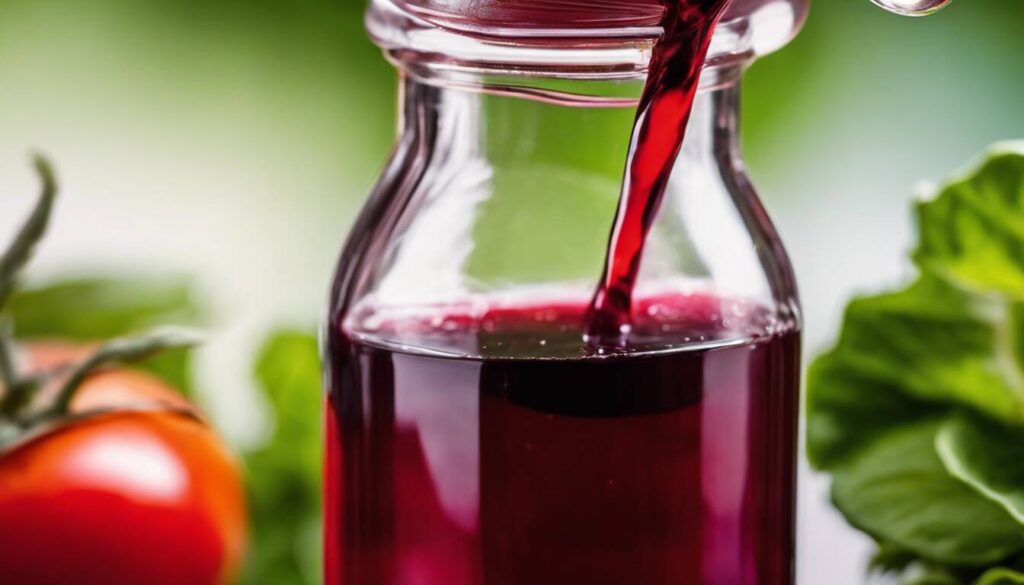Wine and beer, when enjoyed responsibly, are not just sources of pleasure but also contain ingredients that can boost your wellbeing. From a rich bounty of antioxidants in red wine to beneficial hops in certain beers, these beloved beverages offer more than just great taste. However, it’s important to remember that not all wines and beers are created equal – the red variety of wine and hop-rich beers pack a stronger health punch. Now, wouldn’t you like to know why red wine and craft beers take the crown?
Consuming moderate amounts of wine or beer has been associated with potential cardiovascular benefits, including improved blood vessel function and reduced risk of heart disease. However, it’s important to remember that moderation is key, and individual health factors should be considered before incorporating alcohol into a daily routine.

Types of Wine and Beer That Have Health Benefits
When it comes to selecting a beverage with potential health perks, considering the different varieties of wine and beer that offer distinct advantages is essential. Let’s start with red wine, often lauded for its high levels of antioxidants, particularly resveratrol. Antioxidants are crucial as they help safeguard your cells from damage caused by free radicals, which can lead to various chronic diseases. Resveratrol is often associated with heart health and longevity due to its anti-inflammatory and blood pressure-lowering effects.
On the other hand, some may prefer white wine or rosé. Although they also contain antioxidants, they generally have less compared to red wine. However, they still provide health benefits, albeit not as concentrated as red wine. These lighter wines can still contribute to overall antioxidant intake.
Moving onto beer, studies have indicated that beers with higher hop content may offer more health benefits due to the presence of polyphenols, compounds found in plants that act as powerful antioxidants. This can assist in safeguarding your body from damage caused by oxidative stress, potentially reducing the risk of chronic disease.
What this really means is that when you’re contemplating what type of alcoholic drink to enjoy, knowing the different choices and their respective health benefits can guide you toward making a more informed decision about what to drink.
For example, if you’re seeking a heart-healthy option, choosing a glass of full-bodied red wine might be a good choice due to its rich content of resveratrol. On the other hand, if you gravitate towards beer, selecting a brew with higher hop content could provide additional polyphenols with potential health benefits.
Understanding the differences between various types of wines and beers empowers individuals to make more conscious choices about their alcohol consumption based on their personal health preferences.
Now equipped with an understanding of the health benefits associated with different types of wine and beer, let’s delve into the specifics of the antioxidants found in these beverages.
Antioxidants in Wine and Beer
Antioxidants aren’t just buzzwords thrown around by health enthusiasts; they are an essential aspect of promoting overall health. In both wine and beer, you’ll find a range of these powerful compounds.
Red Wine Antioxidants: Starting with red wine, it’s rich in polyphenols, especially flavonoids like resveratrol, which has received attention due to its potential health benefits. Resveratrol has been linked to reducing inflammation, lowering LDL cholesterol (the “bad” cholesterol), and preventing blood clotting. However, it’s important to note that while some studies show a lower risk of heart disease associated with resveratrol, other research suggests it may not provide the protective effects previously thought.
Beer Antioxidants: Conversely, beer, particularly craft and hoppy beers, brings its array of antioxidants to the table. These antioxidants mainly come from barley malt and hops. Phenolic compounds found in these ingredients contribute to the antioxidant properties of beer.
Not all beers are created equal in terms of antioxidants; the type of beer and the brewing process can have an impact on its antioxidant content. The presence of different grains in the brewing process can also influence the types of antioxidants found in beer.
For example, darker beers like stouts contain more antioxidants because they are made from roasted grains. Additionally, craft beers tend to have higher levels of antioxidants compared to mass-produced beers due to the use of traditional brewing methods and a wider variety of ingredients.
Understanding the antioxidant content of both wine and beer sheds light on how these beverages can contribute to overall health. But remember, moderation is key when it comes to consuming alcohol for potential health benefits.
Exploring the connection between moderate alcohol consumption and health effects delves into new dimensions of this discussion—a topic that warrants our undivided attention.
The Health Effects of Moderate Alcohol Consumption
The question of whether alcohol has any health benefits is often a topic of debate. On one hand, we’ve all heard about the potential cardiovascular perks and better insulin sensitivity associated with moderate alcohol use. But on the flip side, consuming alcohol is also linked to various health risks, and it’s clear that overdoing it is harmful rather than helpful.
When we talk about moderate drinking, what do we mean? For most people, moderate drinking means no more than one drink per day for women and no more than two drinks per day for men. It’s important to note that one standard drink is equivalent to a 12-ounce beer, a 5-ounce glass of wine, or 1.5 ounces of distilled spirits. This definition forms the baseline for the potential health benefits attributed to alcohol.
Now let’s delve into some of these potential health benefits that have been noted in research studies over the years.
Potential Health Benefits
- Heart Disease Risk: Some studies have suggested that moderate alcohol consumption, particularly red wine, may be associated with a lowered risk of heart disease. The antioxidants present in red wine, such as resveratrol, have been proposed as having a protective effect on the heart.
- Diabetes Risk: There is also evidence to suggest that moderate alcohol consumption may reduce the risk of developing type 2 diabetes. It’s thought that this could be due to improved insulin sensitivity and glucose metabolism through moderate alcohol intake.
- Insulin Sensitivity: Research indicates that moderate alcohol consumption might potentially enhance insulin sensitivity in some individuals. This can be particularly significant for those at risk of developing type 2 diabetes.
It’s important to approach these findings with caution. While they are interesting, it’s vital to remember that individual health conditions and lifestyle factors play a significant role in determining how the body responds to alcohol consumption.
As always, it’s best to consult with healthcare professionals to understand what is right for your health and safety in relation to alcohol consumption. This way, you can make informed decisions based on your specific health circumstances.
The potential health benefits associated with moderate alcohol consumption are compelling but need to be carefully weighed against individual health considerations and other lifestyle factors.
Alcohol’s Impact on Heart Disease Risk
Concerning alcohol and heart health, the discourse often centers around the potential benefits and risks of consuming alcoholic beverages. Research suggests that moderate consumption of both wine and beer might confer cardiovascular benefits. Red wine, in particular, has garnered attention for its potential to increase levels of “good” HDL cholesterol and reduce the risk of artery damage due to its antioxidant content.
Expanding upon this idea, studies have shown an association between moderate alcohol intake and a lower risk of dying from heart disease, but establishing cause and effect is challenging. Moderate drinking, defined as an average of one drink per day for women and one or two for men, is believed to have a protective effect on the heart.
Red wine contains antioxidants, such as resveratrol and flavonoids, which might play a role in protecting the heart. These compounds may help prevent damage to blood vessels, reduce inflammation, and limit the formation of blood clots. It’s important to note that exercise and other foods also provide these heart-healthy benefits.
To put it into perspective: Reducing your risk of heart disease isn’t only about what you drink. It’s also about leading an overall healthy lifestyle. Regular exercise and a balanced diet with plenty of fruits and vegetables can bring similar benefits.
However, it’s essential to approach these findings with caution. While moderate alcohol intake has been associated with potential cardiovascular benefits, excessive alcohol consumption can lead to high blood pressure, heart failure, stroke, and cardiomyopathy. Heavy drinking is linked to poor health outcomes including heart conditions.
In summary, while some studies suggest a potential link between moderate alcohol consumption and reduced risk of heart disease, it’s crucial to remember that excessive alcohol intake can have severe negative impacts on heart health. As always, moderation is key when it comes to reaping any potential health benefits from moderate alcohol consumption.
Effects on the body’s Systems from Wine and Beer
Understanding how wine and beer can influence our bodies resembles unraveling a complex puzzle with many pieces. Let’s start with wine. The polyphenols in red wine are believed to be the key players here. These natural compounds are thought to have the ability to relax blood vessels and potentially prevent the oxidation of LDL cholesterol, acting as little protectors for a healthier heart by enabling smoother blood flow and shielding against damaging cholesterol buildup.
Expanding on this, these polyphenols have been commended for their antioxidant effects, aiding in reducing inflammation—a crucial factor contributing to heart disease. They work like tiny soldiers on the front line, fighting off the harmful effects of free radicals that can wreak havoc inside our bodies. This ongoing area of research continues to provide valuable insights into the potential benefits of moderate red wine consumption.
On the other hand, let’s discuss how beer might affect our bodies. A standout element here is dietary silicon found in beer, which is vital for bone health and has been linked to increasing bone density, potentially contributing to stronger bones. While more studies are needed for a complete understanding, initial research suggests that regular, moderate beer consumption could make a difference in maintaining bone health as we age. However, this doesn’t mean we should grab a six-pack every day—moderation is key here.
It’s fascinating how these beverages have nuances that interact with different parts of our bodies. We’re just beginning to scratch the surface of this knowledge; hence, moderation is crucial.
In summary, both wine and beer possess intriguing qualities that can positively impact our bodies in various ways when enjoyed in moderation. The intricate interplay between beverages and human physiology is an ongoing field of study, creating valuable insights into potential health benefits stemming from responsible consumption of these drinks.
Wine and Beer’s Influence on Weight and Overall Health

When it comes to our health and weight, we’re often advised to watch what we eat and drink. It’s no surprise that alcohol consumption is a part of the discussion. Let’s start with red wine—the superstar of the vineyard.
Red wine contains a compound called resveratrol, which studies have suggested might help turn white fat into healthier brown fat, making it easier for the body to burn during physical activity—potentially aiding in weight management.
However, it’s essential to remember that moderation is key when consuming alcohol, including red wine. Just like cake and ice cream, alcohol has calories, so indulgence must be approached mindfully.
Light Beer: A Weight-Watcher’s Companion
Light beer, with fewer calories compared to regular beer or other alcoholic beverages, might seem like an excellent choice for those mindful of their calorie intake when enjoying a drink. Nevertheless, overconsumption of even lighter drinks could counteract any potential benefits.
It’s really all about balance—enjoying a drink or two in moderation while being mindful of overall lifestyle choices such as eating balanced meals and staying active can be a sustainable approach to maintaining weight and overall health.
To sum up, when it comes to wine and beer, the key word here seems to be “moderation.” Red wine might have some unique compounds that can be beneficial when consumed modestly, while light beer can offer a lower-calorie alternative. However, overconsumption of either can have negative effects on your health. So, as with many things in life, balancing our choices is key.
By being mindful of the research-backed benefits and pitfalls of wine and beer consumption, you can make informed and healthy choices. Support us at our merch shop!

